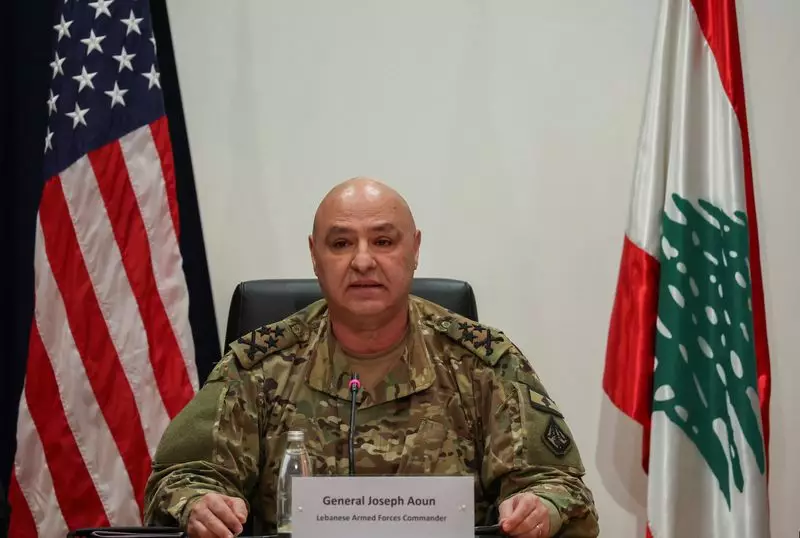The recent election of General Joseph Aoun as the President of Lebanon is a notable milestone in the nation’s turbulent political landscape. His election follows a prolonged leadership vacuum, and his appointment comes amid significant regional tensions, particularly between Israel and the militant group Hezbollah. This article will delve into Aoun’s military background, the strategic decisions he faced, and the implications of his presidency in a country fraught with internal and external challenges.
Joseph Aoun, a seasoned military leader at 60 years old, has transitioned from leading the Lebanese Armed Forces (LAF) to taking on the presidential mantle, thereby becoming the fifth military commander to assume this significant role in Lebanese history. His appointment comes at a critical juncture after more than two years of political stalemate, reflecting a desperate need for stability within a country that has faced considerable turmoil since the end of its civil war in the early 1990s.
Aoun’s military tenure has been marked by formidable challenges, including navigating his troops through a profound national financial crisis that has severely impacted the Lebanese lira and, consequently, the salaries of soldiers. The economic despair that the country has faced can be likened to a silent war, one that saps morale and poses a danger to national security by undermining the very institution that has long served as a bastion of stability.
During the recent military escalations involving Israel and Hezbollah, Aoun’s decision to keep the Lebanese army largely disengaged is both remarkable and fraught with implications. Despite the loss of over 40 soldiers during the conflict, he prioritized civil peace and abstained from provoking direct confrontations with Israel, instead maintaining a status quo that could be perceived as an effort to shield his military from further casualties. This decision underscores a profound understanding of the delicate balance required in Lebanese politics, where any misstep could inflame existing tensions.
Moreover, while Hezbollah, often viewed as a powerful political and military entity in Lebanon, suffered significant losses during the conflict, Aoun remained reticent regarding the group’s arsenal. His silence on such a critical issue speaks volumes about the intricate web of alliances and rivalries within Lebanon, as well as his rather cautious approach in managing relationships with various factions. Such restraint is also indicative of a broader effort to promote a unified national narrative, even as diverging interests threaten to unravel social cohesion.
The role of General Aoun in facilitating a ceasefire agreement brokered by the United States and France in November signifies a shift in Lebanon’s diplomatic posture. The terms of the ceasefire require the deployment of the Lebanese military to southern Lebanon, effectively placing the army in a position of responsibility just as Israeli and Hezbollah forces withdraw. This scenario showcases the intricate interplay between military authority and diplomatic engagement, as Aoun must navigate both local loyalties and international pressures.
His administration’s establishment could also have broader implications for U.S. policy in the region, given the considerable American support for the Lebanese army over the years. The U.S. strategy has aimed at bolstering state institutions as a counterweight to Hezbollah, and Aoun’s presidency may be viewed as a continuation of that agenda. The steady flow of U.S. funding and aid underscores a commitment to maintaining a functional state amidst the vacuum created by political disarray.
General Aoun’s previous criticisms of Lebanon’s ruling politicians amid the financial collapse frame him as a figure willing to confront the status quo, albeit while still operating within the constraints of military tradition. His rare public statements reflect a growing frustration among military personnel as they struggle to maintain stability in the face of widespread hardship. His call for accountability from political leaders hints at a burgeoning sense of responsibility that transcends military boundaries.
The election of General Joseph Aoun as President of Lebanon represents a multifaceted development in a nation grappling with internal discord and external threats. His commitment to maintaining military neutrality while advocating for political accountability places him at a crossroads. As Lebanon embarks on this new chapter, Aoun’s leadership will undoubtedly be tested against the backdrop of a complex and evolving geopolitical landscape, and it remains to be seen how he will balance the dual imperatives of national security and political reform.

